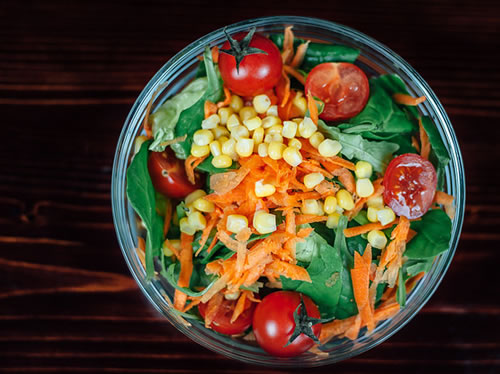Fiber: High or Low?

by Nancy Burke, R.D., Danielle Karsies, M.S., R.D. and Melissa Shannon-Hagen, R.D., C.S.O., University of Michigan Rogel Cancer Center Symptom Management and Supportive Care Program
Cancer and treatment can change your dietary needs
We often hear that fiber is great for our health. It's true that fiber in our diets acts as a wonderful scouring brush that cleans our gastrointestinal tract, keeping it healthy and reducing the risk of diverticulitis and colorectal cancer.
Evidence also shows that fiber lowers cholesterol levels, controls blood glucose levels and promotes heart health and weight management.
But, for cancer patients, there are instances when fiber-rich foods may actually aggravate your stomach. At these times, a modified fiber diet can help.
YOUR SYTMPTOM:Diarrhea Constipation
Nausea |
THE SOLUTION:Modified Fiber Diet
Move More
|
If you're a U-M Rogel Cancer Center patient, call our dietitians for nutritional counseling and dietary solutions for your symptoms and side effects at 1-877-907-0859.
Read the Fall, 2016 issue of THRIVE.
Learning more about nutrition and cancer treatment-related side effects
